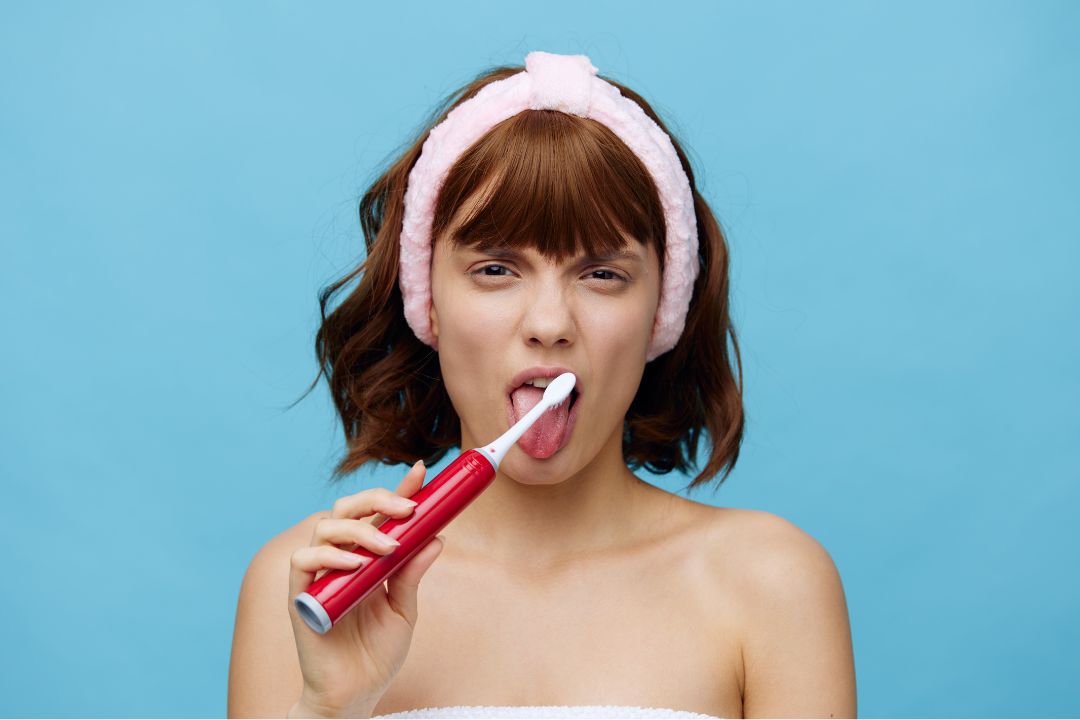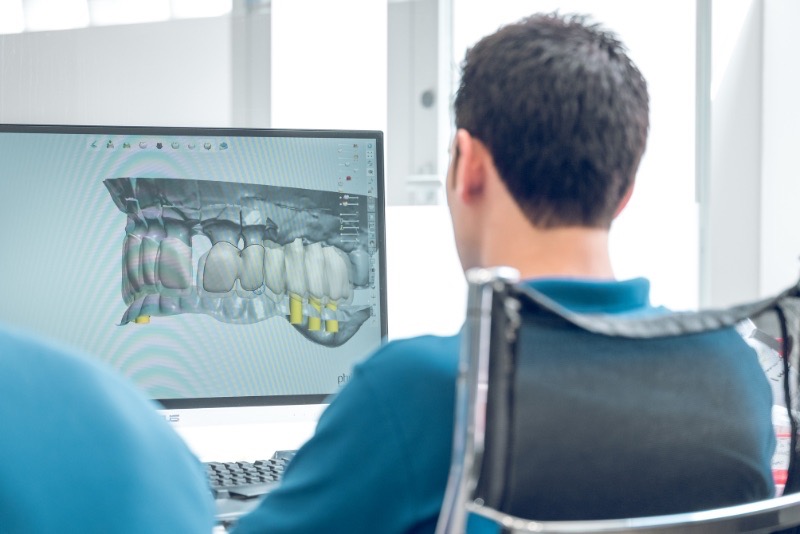Oral hygiene is essential for maintaining optimal dental health. While brushing your teeth is common, cleaning your tongue is often overlooked. Is brushing your tongue good for you? Read on to learn about the importance of this practice and how to do it properly.
Brushing Your Tongue: Why Is It Important?
Did you know that your tongue can harbour many bacteria and food debris that may contribute to oral health problems? This is due to the rough surface of the tongue, which provides numerous nooks and crannies where bacteria can settle and thrive.
As a result, these bacteria lead to bad breath and plaque buildup if not properly managed. Therefore, brushing your tongue is essential to a complete oral hygiene routine.
How to Clean Your Tongue for a Good Oral Hygiene
Brushing your tongue is simple and can be part of your daily routine. There are two main ways to keep your tongue clean, with a scraper or toothbrush:
Using a Toothbrush
One of the most common ways to clean your tongue is using a regular toothbrush. After brushing your teeth with toothpaste, rinse the toothbrush thoroughly. Then, apply a small amount of toothpaste onto the bristles. Now, focus on your tongue.
Using the toothbrush, gently clean the surface of your tongue. It is important to brush from the back of the tongue toward the front in gentle, circular motions. Make sure to cover the entire surface of the tongue, including the sides and the top. This process helps remove bacteria and food particles.
After brushing your tongue, rinse your mouth well with water to eliminate toothpaste residue.
Using a Tongue Scraper
Another effective option is a tongue scraper. These devices are designed to remove bacteria and food debris from the tongue more efficiently than a toothbrush.
After brushing your teeth, rinse the tongue scraper to ensure it is clean. Then, place it at the back of your tongue and gently slide it forward. Be sure to apply light pressure to avoid damaging the tissue on your tongue. Repeat this process several times, rinsing the scraper after each pass.
Once you’ve cleaned your entire tongue, rinse your mouth with water to remove any remaining residue. Tongue scrapers can be an excellent tool for keeping your tongue clean and fresh.
How Often Should You Brush Your Tongue?
We recommend brushing your tongue at least twice a day, immediately after brushing your teeth. Ideally, do this once in the morning and once at night. This will help remove bacteria and food debris that accumulate overnight and throughout the day.
Learn more: What is Digital Dentistry, and its benefits?
Benefits of Brushing Your Tongue
Brushing your tongue offers several benefits for oral health:
- Promotes Healthy Teeth and Gums: Regular tongue cleaning can reduce the number of bacteria in your mouth, lowering the risk of dental and gum problems.
- Freshens Your Breath: Bacteria buildup on the tongue is a leading cause of bad breath. Brushing your tongue helps eliminate these bacteria and prevents unpleasant odours.
- Improves Taste Perception: Taste buds are located on the tongue’s surface and are responsible for detecting flavours. When your tongue is clean, your taste buds can function more effectively, enhancing your ability to enjoy food.
- Prevents Oral Problems: Bacteria on the tongue can spread to other areas of the mouth, contributing to various oral issues and gum diseases, such as gingivitis and periodontitis. Cleaning your tongue reduces the risk of developing these conditions and promotes oral health.
- Complements Other Oral Hygiene Products: Brushing your tongue is an important complement to other oral hygiene practices, such as flossing and mouthwash. While flossing cleans your teeth and mouthwash reaches hard-to-access areas, cleaning your tongue completes the process, ensuring thorough and effective oral hygiene.
At Clínica Durán & Burgos, we specialise in oral health treatments. For more information, book your appointment and consult with us. We can help you organise your trip to Sitges.







